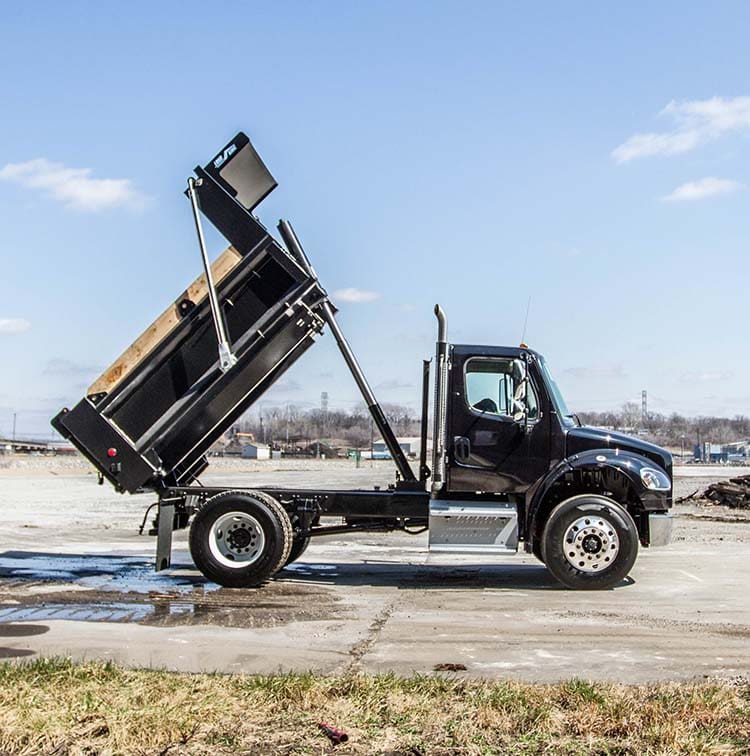What Laws Govern Trucking Accidents in Tennessee?
Trucking accidents are among the most devastating incidents on our roads. A commercial truck’s sheer size and weight can lead to catastrophic consequences when accidents occur. In Tennessee, specific laws and regulations govern the trucking industry and ensure the safe operation of commercial vehicles.

According to data from the state’s Department of Safety and Homeland Security (DOS), there were approximately 14,000 crashes involving large trucks in 2022, a 1.4% increase from the previous year. Most of these accidents result from driver errors, including trucks veering out of their lanes, tailgating, and failure to yield.
When pursuing a compensation claim following a truck accident, the most crucial element in establishing negligence on the truck driver, company, or owner is demonstrating violations of laws or regulations.
In Tennessee, the trucking industry is subject to numerous laws and regulations, and it is not uncommon for one or more of these regulations to be breached, directly contributing to accidents. At Burnett Law, we have over 25 years in truck accident injury cases. We are experts on the matter and aim to help guide you during these challenging times in life if you so face them. Remember, you are not alone!
Federal Motor Carrier Safety Regulations (FMCSRs)
It’s essential to recognize that trucking is a highly regulated industry, subject to federal and state laws. The Federal Motor Carrier Safety Regulations (FMCSRs) set the standards for commercial motor vehicles (CMVs) operating in interstate commerce, including those passing through Tennessee. These regulations cover various aspects of trucking, including driver qualifications, vehicle maintenance, hours of service, and safety equipment.
Tennessee Trucking Laws
In addition to federal regulations, Tennessee has state laws governing trucking accidents. These laws work with the FMCSR to provide extra protection for residents and visitors in the state. Some notable Tennessee state laws related to trucking accidents include:

Truck Inspection Law
All vehicles weighing over 10,001 pounds within the state are subject to annual inspections. During this inspection, certified mechanics meticulously examined various truck components, ranging from brake and fuel systems to lights and steering devices. Their evaluation includes the following key aspects:
- Tire condition must not reveal leaks, bulges, or cuts that expose their inner cords.
- Brake pads or linings must be securely attached to the shoe and should not be saturated with grease, brake fluid, or oil.
- Trailers weighing over 3,000 pounds must have fenders or mudguards installed.
- Reflectors and similar safety features should be positioned in areas that enhance the visibility of the truck to other vehicles.
Truckers occasionally employ custom-made trailers to transport materials between locations. These trailers are typically built using new or recycled parts or reconstructed based on the specifications of established manufacturers. Such trailers’ owners must submit applications to the Department of Safety and Homeland Security (DOS), which will then coordinate with designated personnel to conduct the necessary inspections.
Failure to stop at an authorized inspection station can result in fines of $250 for drivers. State officers have the authority to issue “out-of-service” violations to individuals whose truck components are damaged, missing, or loosely attached. The fines for these violations range from $50 for a first offense to $150 for a third offense.
Oversized and Overweight Permit Laws
Truck operators in the state must secure a special permit if their vehicle’s dimensions or loads exceed the specifications set by the state. For instance, trucks carrying up to 20,000 pounds on a single axle or up to 40,000 pounds on a tandem axle must obtain prior authorization from the Tennessee Department of Transportation (TDOT).
Additional conditions necessitate special permits from TDOT, including:
- Vehicles exceeding a height of 13 feet and 6 inches but not more than 15 feet and 6 inches. Beyond needing a special permit, such vehicles are also restricted from certain routes.
- Vehicles wider than 8 feet and 6 inches but not exceeding 10 feet. These trucks don’t require specific markings during their journeys. However, vehicles exceeding 10 feet in width may need front and rear markings and escort vehicles for their trip.
- Vehicles with a length exceeding 75 feet. Truckers must ensure these vehicles are equipped with highly visible lights. Additionally, vehicles over 90 feet in length require escort vehicles.
Special permits are granted to truckers transporting seed cotton if their vehicle’s dimensions remain within 9 feet in width, 53 feet in length, and 20,000 pounds per axle. Drivers can transport their goods without restrictions on holidays, but only during the cotton harvest season.
Certain counties prohibit overweight or oversized trucks from traveling on specific roads. According to TDOT, 24 out of the state’s 95 counties maintain weight restrictions on certain roads.
Drivers caught operating oversized or overweight trucks without the necessary permits can face a class C misdemeanor charge. They may be subject to fines of up to $50 or a maximum of 30 days in prison. Furthermore, penalties are imposed based on the excess weight of their trucks. For example, truckers are fined $25 and an additional $0.03 per pound surcharge for the first 3% over the weight limit, with an extra $25 fine and a $0.05 per pound surcharge calculated for any remaining excess weight.
Commercial Trucking Insurance Requirements
Truck drivers must adhere to minimum insurance requirements that vary depending on the nature of the cargo they transport. For truckers engaged in interstate commerce, the Federal Motor Carrier Safety Administration (FMCSA) imposes the following guidelines:
- $5 million coverage for trucks towing cargo, portable tanks, hopper-type vehicles, and vehicles transporting class 7 materials such as thorium and uranium.
- $1 million coverage for vehicles transporting oil.
- $750,000 coverage for trucks weighing 10,001 pounds or more while transporting non-hazardous materials.
- $300,000 coverage for vehicles weighing less than 10,001 pounds.
Under state regulations, all Tennessee motorists, including truckers, must carry liability insurance as part of their proof of financial responsibility. The minimum coverage requirements for vehicle operators within the state are as follows:
- $25,000 for injury or death of one person in an accident.
- $50,000 for injury or death of two or more individuals in an accident.
- $25,000 for property damage.
Loose Materials in Open Truck Beds
Trucks equipped with open beds are required to load loose materials to ensure they remain at least four inches below the sides of the bed. According to state law, loose materials are substances that have the potential to be blown away, spill, or fall from an open truck bed.
Truckers must secure these materials effectively to minimize the risk of hazardous accidents. These measures can include using a tarpaulin cover or a dedicated enclosure. Some items, such as asphalt, soil, unfinished lumber, or crushed stone, may not require covering during transportation.
If a police officer observes any of these materials being dislodged from a truck’s bed, the driver may receive a citation.

It’s important to note that truck operators transporting farm products are exempt from the state’s regulations concerning loose materials.
Individuals found violating state law by a law enforcement officer may be charged with a class C misdemeanor. Convicted drivers could face a maximum jail sentence of 30 days, fines of up to $50, or a combination of both penalties.
Hazardous Material Endorsement Laws
Truck drivers must obtain permission, known as a hazardous material endorsement (HME), from the TSA (Transportation Security Administration) to transport dangerous substances like ethanol. Tennessee is the leading state in the U.S. for exporting spirits, including the renowned brand Jack Daniel’s. Consequently, it’s common for truck drivers to transport chemicals used in distilleries as part of their responsibilities.
However, individuals convicted of specific crimes, including terrorism, espionage, murder, treason, or sedition, are ineligible to apply for an HME under TSA regulations.
If a truck driver carrying hazardous materials is involved in an accident, they must promptly report the incident to the Tennessee Emergency Management Agency. State law mandates that this organization maintains records of accident reports.
Liability Laws
Tennessee adheres to a modified comparative negligence system when determining liability in trucking accidents. Under this system, a plaintiff’s recovery is reduced by the percentage of fault in an accident.
If the plaintiff is found to be 50% or more at fault, they may not recover any damages. Understanding these liability laws is crucial for anyone involved in a trucking accident lawsuit in Tennessee.
Statute of Limitations
If you’re involved in a trucking accident in Tennessee and wish to pursue a personal injury claim or lawsuit, you must be aware of the statute of limitations. In Tennessee, the statute of limitations for personal injury cases, including those arising from trucking accidents, is typically one year from the date of the accident. For wrongful death cases, it’s usually one year from the date of death. It’s crucial to consult with an attorney to ensure you meet these deadlines and protect your right to compensation. Failing to file a lawsuit within this timeframe can result in losing your legal right to seek compensation. This is why we always encourage you to give us a call immediately after any accident so we can best guide you on next steps.
If you are involved in a trucking accident, contact Burnett Law personal injury and trucking accident lawyers. We can help you navigate the legal complexities and seek the compensation you may be entitled to.
We have over 26 years of experience and are the Official Cumberland County Attorney. We are dedicated to helping the hurting, and we value community, neighborhood, and work ethic. Contact us at (931) 484-7549 for a free consultation. We are here to help you every step of the way!
Disclaimer: The information contained in this blog or on this website is provided for informational purposes only, and should not be construed as legal advice on any specific subject matter. No person should act or refrain from acting due to any content included in the site without seeking legal or other professional advice on the particular facts and circumstances at issue from an attorney licensed in the person’s state. The Firm expressly disclaims all liability in respect to actions taken or not taken based on any or all the contents of this blog or website.
Burnett Law
Search Posts
Recent Posts
- Car Accidents: Types of Damages October 22, 2024
- Car Accidents: Demystifying Legal Jargon August 9, 2024
- How to Choose the Right Personal Injury Attorney After a Motorcycle Crash January 16, 2024
- Navigating Insurance Claims After a Car Accident: A Step-by-Step Guide January 9, 2024
- Understanding Social Security Disability Hearings in Tennessee January 5, 2024
Categories
Subscribe!
Thanks for subscribing! Please check your email for further instructions.
